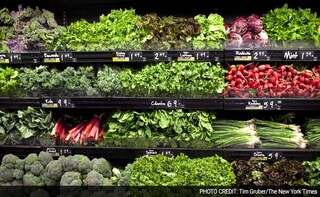Five years after Congress passed a landmark law meant to prevent the importation of contaminated food, the Food and Drug Administration on Friday made final new rules that for the first time put the main responsibility on companies for policing the food they import. The rules also include new safety standards for produce grown on American farms. Some take effect in a year.
© 2015 New York Times News Service
Advertisement
Advertisement
© 2015 New York Times News Service
For the latest food news, health tips and recipes, like us on Facebook or follow us on Twitter and YouTube.
Advertisement
